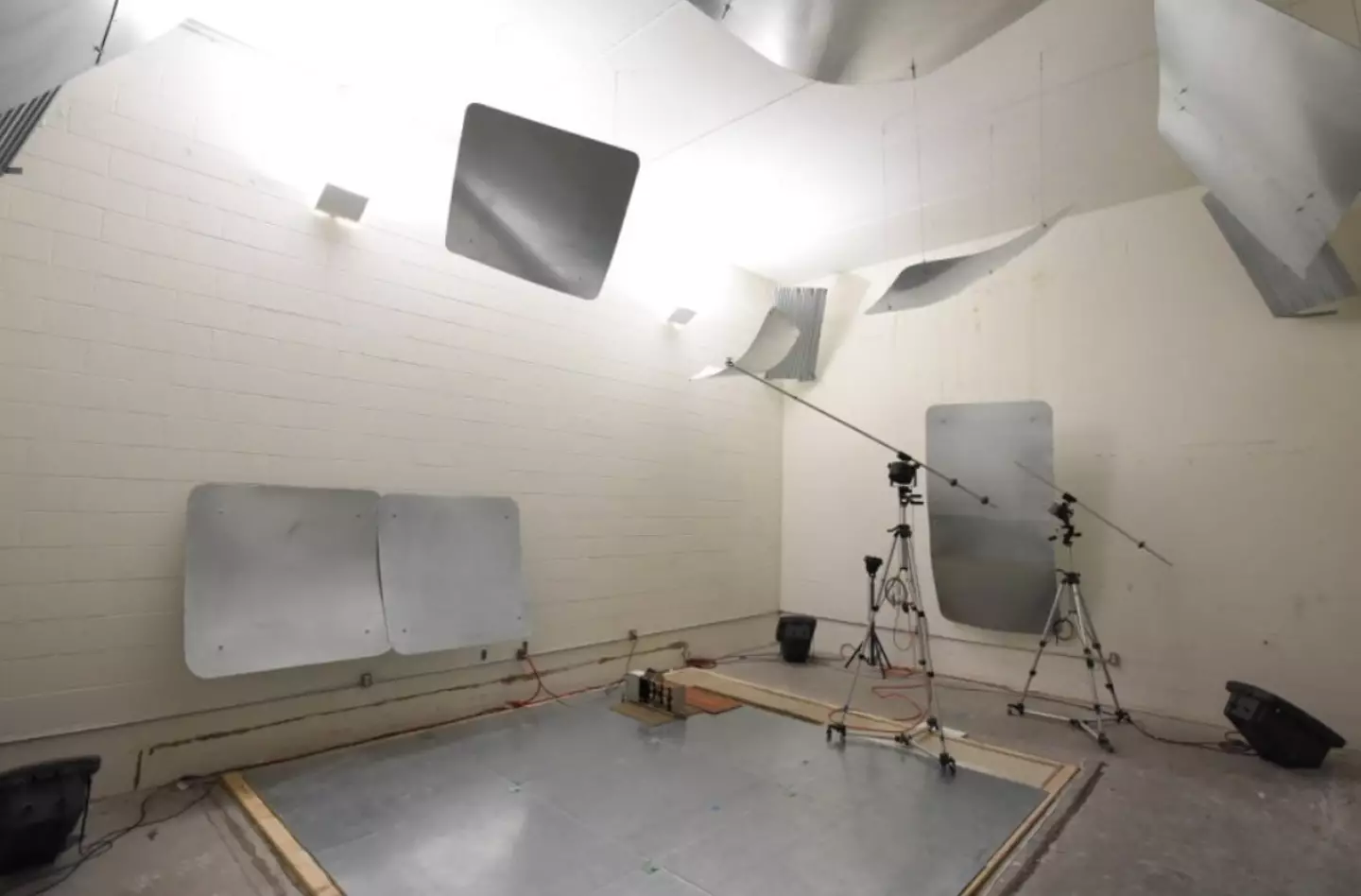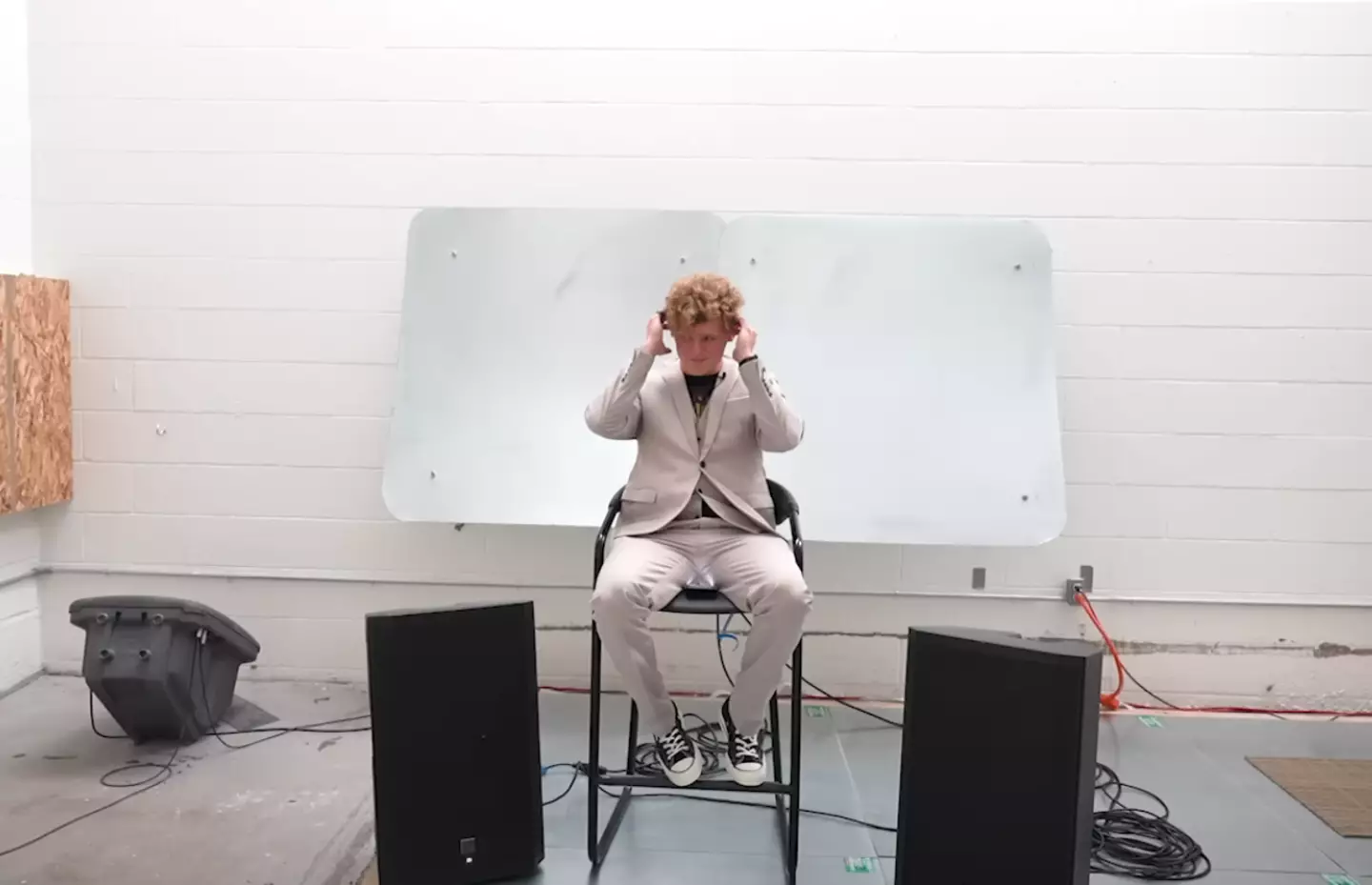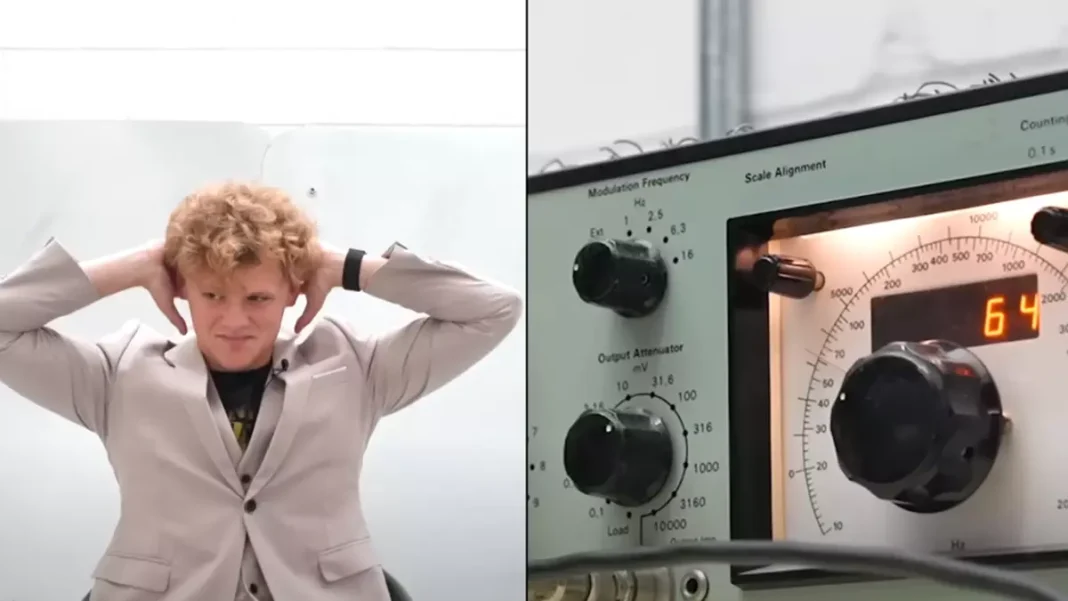Picture the world’s loudest room, what kind of place comes to mind?
For most of us it’s probably the time we’ve stood too close to the speakers at a concert, or an airplane filled with screaming children.
Well, what about this place?

Doesn’t look particularly noisy in here, right? (Orfield Laboratories)
Upon first glance, this unassuming room may look like a post-modern art installation and nothing particularly punishing on the ears – but that’s where you’re wrong. The room is actually a reverberation chamber which has been specifically designed so every surface is able to reflect sound energy, allowing for the entire space to remain at the same volume.
This particular room is located at Orfield Laboratories in Minnesota, USA, known for its infamous anechoic chamber, aka the ‘world’s quietest room’. But in this case, instead of driving you crazy by a complete lack of sound, the reverberation chamber will reflect a noise back at you until it becomes unbearable for the human ear to withstand.
Which is arguably even more unpleasant than hanging out in a space which is said to be so quiet you can hear the sound of your own organs.
What happens to a person in a reverberation chamber?
Thanks to the weird and wonderful world of the internet, there is no shortage of people willing to put themselves through agonising pain in exchange for the possibility of going viral.
One of these individuals is YouTuber Ryan Trahan, who volunteered to find out how long he could last in the space.
Spoiler alert, it didn’t end very well.

This content creator learnt that music is much less enjoyable in a reverb chamber (YouTube/@Ryan)
Upon arriving in Minnesota, the content creator sat down with Steve Orfield, owner of Orfield Laboratories and sound expert, to learn how the space worked.
“A reverb room is a room which is pretty close to 100 percent reflective,” he explained. “So, no matter where you are in a reverb room, it doesn’t get any louder or any quieter… The sound is the same everywhere.
“The louder you talk, the worst it is,” he added.
In order to conduct Trahan’s experiment, Orfield suggested he play classical music through a series of speakers and see how long it took before the reverberating sounds became too uncomfortable to manage.
Not even a minute into the experiment and the content creator appeared visibly uncomfortable. After nearly two minutes in the room Trahan was forced to cover his ears due to the ‘sensory overload’.
He then attempted walking around and even dancing as a method of distraction, before finally packing the experiment in after three minutes and 37 seconds.
Reflecting on the uncomfortable experience, Trahan noted that he ‘physically couldn’t’ stay still due to the noise levels.
For more information on Orfield’s work, check out his laboratory page here.






